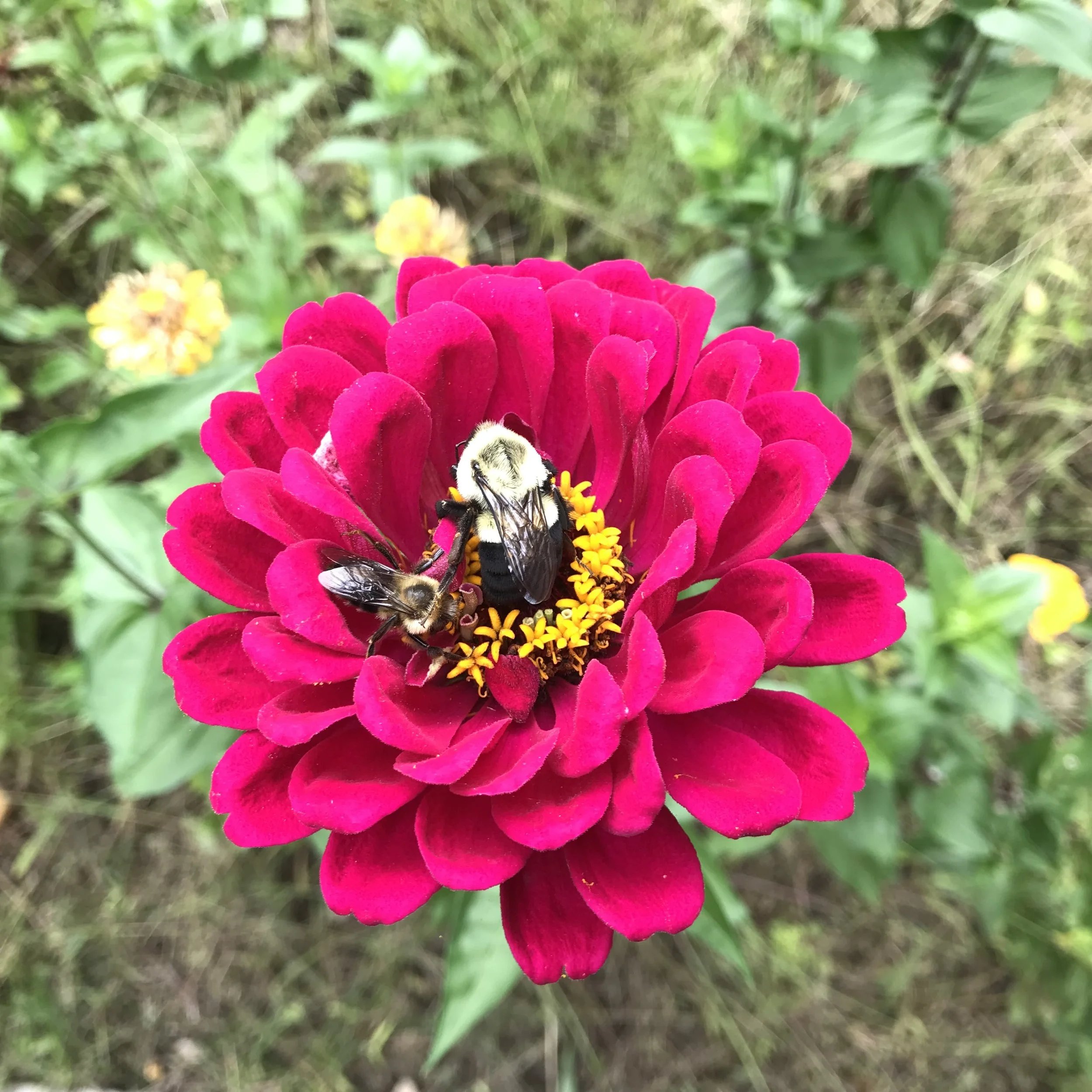Thank you so much to Athena Contus of Athena's Bees for her wonderful talk about bees and pollinators in a changing climate and things we can do to promote healthy pollinator populations, including:
planting keystone species, including oak, cherry, willow, and birch trees that support hundreds of species, and asters, goldenrods, and sunflowers, which are among the best choices for biodiversity and local food webs,
reducing lawns by half—"if every homeowner did this in the United States, corridors would be connected, supporting more biodiversity than fragmented areas",
and avoiding the use of poisons including pesticides, herbicides, and chemical fertilizers.
Athena also shared an abundance of excellent resources with us. Spend some time with the websites and videos below, and you will learn a lot about ways to support the insects and ecosystems that make our lives possible.
While the larger forces threatening pollinator populations may seem far away or hard to grasp, we can take practical steps every day here at home to support native and naturalized pollinators.
New Hampshire’s cold climate currently boasts plant hardiness zones that provide rich & wild seasonal forage for equally hardy insects, far from contaminants and harmful practices associated with industrial agriculture. As our population increases from southern parts of the country, and land use changes with longer, warmer seasons, the ever-accommodating honey bee lends us valuable insights into how all our pollinators may be at risk. This program will discuss common sense practices to help beekeepers, gardeners, home owners, and land managers avoid common mistakes while working and living with the valuable pollinators of our local farm and forest community.
This free program is part of the Cook Memorial Library/Chocorua Lake Conservancy series “Climate & Community.”
Athena Contus has been keeping bees in the Sandwich Mountain Range of New Hampshire since 2008. She currently serves on the board of the Winnipesaukee Beekeepers Association and as a teacher of Apiary Management through the Carroll County New Hampshire Adult Education Program. She received her Master Beekeepers Certification through the University of Montana with a long history of cold-climate honey bee research, while continuing her education through the Cornell University Master Beekeepers program.
Climate Change and Bees — Articles & Websites:
American Meadows — “Meadowscaping”
“Bolstering Bees in a Changing Climate” — Diana Cox-Foster
“Role of honey bees in ecosystem pollination” — Honey bees as the world’s most important single species of pollinator in natural ecosystems and a key contributor to natural ecosystem functions.
Partial Pollination & Malformed Fruit Science
New Hampshire Fish & Game Pollinator Program
The New Hampshire Wildlife Action Plan
University of New Hampshire — Pollinators of New Hampshire
USDA Natural Resources Conservation Service — Pollinator Practices in New Hampshire
Xerces Society — Conservation Program for Pollinators
Videos:
How to fight climate change from your garden — with Prof. Dave Goulson:
Media Mayhem: How the news media is pitting honey bees against native bees — Kirsten Traynor. VERY VALUABLE insights into the roll beee keepers play in promoting habitat for native pollinators and the known dynamics between bees and native pollinators.
Banner image: Two bee species on a zinnia flower. Photo: Juno Lamb

